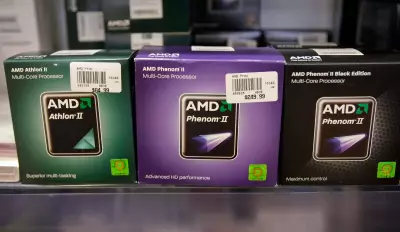
Japanese technology giant SoftBank Group has reported staggering quarterly profits driven by its massive bet on artificial intelligence company OpenAI, demonstrating the lucrative potential of strategic AI investments even as concerns about an "AI bubble" mount.
Record-Breaking Quarterly Performance
SoftBank announced that its second-quarter net profit more than doubled to 2.5-trillion yen (US$16.6-billion), marking one of the company's strongest financial performances in recent years. The spectacular results were primarily fueled by valuation gains in the company's holdings in OpenAI, the creator of ChatGPT, whose valuation has skyrocketed throughout 2024.
The July-September quarter represents SoftBank's best performance since the same period in 2022, significantly outperforming the 1.18-trillion yen profit recorded during the same timeframe last year. This success comes amid a broader bull run in technology-related stocks that has propelled SoftBank's share price to record highs.
Strategic Investment Moves
SoftBank has been aggressively repositioning its investment portfolio to capitalize on the AI revolution. The company sold its entire remaining stake in chipmaker Nvidia for US$5.83-billion in October, a move that raised eyebrows given Nvidia's central role in the AI infrastructure ecosystem.
When questioned about the timing of the Nvidia sale during a press briefing, Chief Financial Officer Yoshimitsu Goto declined to provide specific commentary but explained that SoftBank's substantial investment in OpenAI required the company to utilize existing assets to finance new ventures. "As SoftBank's investment in OpenAI was very large, the company had to use its existing assets to finance new investments," Goto stated.
Financial experts interpreted the Nvidia divestment as a strategic decision. Wong Kok Hoi, founder and chief executive officer of APS Asset Management in Singapore, noted that "Son is a savvy investor so selling the entire stake must mean that he is no longer optimistic about the share price." He added that while major technology companies will continue investing in GPU chips, the current investment levels might not be sustainable for extended periods.
Doubling Down on AI Amid Bubble Concerns
Despite growing warnings about potential overvaluation in the artificial intelligence sector, SoftBank continues to pour resources into AI development. The company expects its total investment in OpenAI to reach US$34.7-billion by the end of December this year, representing one of the most ambitious investment strategies since the launch of its Vision Fund vehicles in 2017 and 2019.
SoftBank's commitment to OpenAI has been substantial and escalating. In March, the Japanese firm agreed to lead a funding round of up to US$40-billion in OpenAI at a valuation of US$300-billion. By October, SoftBank participated in a consortium of investors acquiring $6.6-billion worth of shares from OpenAI employees at a significantly higher valuation of US$500-billion.
The Vision Fund unit posted an impressive investment gain of 3.5-trillion yen, with 2.16-trillion yen originating specifically from the group's OpenAI holdings during the quarter.
Addressing concerns about potential overinvestment in AI technologies, CFO Goto emphasized that "SoftBank's position is that the risk of not investing is far greater than the risk of investing." This philosophy comes as some industry observers note that losses are mounting at OpenAI despite its rapidly increasing valuation.
Funding the AI Ambition
To support its aggressive investment strategy, SoftBank has implemented multiple fundraising initiatives. Beyond the Nvidia share sale, the company sold part of its stake in T-Mobile for US$9.17-billion and has been active in debt markets.
Since April, SoftBank has issued bonds in three different currencies totaling 620-billion yen, US$2.2-billion, and 1.7 billion-euros (US$1.98-billion) respectively. The company also secured a bridging loan of US$8.5-billion specifically for its OpenAI investment and arranged an additional US$6.5-billion bridging loan for its acquisition of semiconductor design company Ampere, though it hasn't yet drawn on the latter.
In response to the company's surging stock performance, SoftBank announced a four-to-one stock split designed to make shares more accessible to investors after the stock nearly quadrupled in value over the past six months.
This aggressive AI-focused strategy reflects founder and CEO Masayoshi Son's established approach of making leveraged bets on transformative technologies. While Son's investment track record includes both spectacular successes, such as his early bet on Alibaba, and notable disappointments like the WeWork investment, the current OpenAI gamble appears to be delivering substantial returns—at least for now.
As the AI investment landscape continues to evolve, SoftBank's massive commitment to OpenAI positions the company at the forefront of what many believe could be the next technological revolution, even as questions persist about whether current valuations accurately reflect the profit potential of these emerging technologies.






